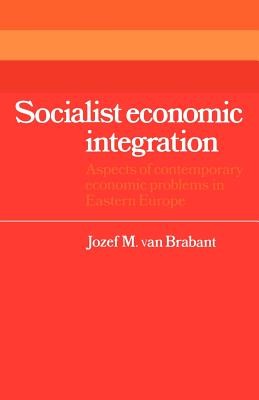
- We will send in 10–14 business days.
- Author: Jozef M Van Brabant
- Publisher: Cambridge University Press
- ISBN-10: 0521153042
- ISBN-13: 9780521153041
- Format: 14 x 21.6 x 2.2 cm, softcover
- Language: English
- SAVE -10% with code: EXTRA
Reviews
Description
First published in 1980, this book offers an account of the Council for Mutual Economic Assistance (CMEA), the regional institution overseeing East European economic integration at the time. The author pursues three main themes in analyzing the sluggish pace of East European integration on trade, the role of East-West relations in the integration process, and the future of integration in the 1980s. Firstly he maintains that the integration process was delayed because of the confused postwar situation and disagreement among leaders of the region over a common economic programme for reconstruction and sustained growth. Secondly, he argues that the postwar development strategy and central planning of the economies inhibited regional cooperation. Finally the author contends that the organization and policy guidelines of the CMEA fell far short of what would seem to be needed to further integration.
EXTRA 10 % discount with code: EXTRA
The promotion ends in 20d.04:34:19
The discount code is valid when purchasing from 10 €. Discounts do not stack.
- Author: Jozef M Van Brabant
- Publisher: Cambridge University Press
- ISBN-10: 0521153042
- ISBN-13: 9780521153041
- Format: 14 x 21.6 x 2.2 cm, softcover
- Language: English English
First published in 1980, this book offers an account of the Council for Mutual Economic Assistance (CMEA), the regional institution overseeing East European economic integration at the time. The author pursues three main themes in analyzing the sluggish pace of East European integration on trade, the role of East-West relations in the integration process, and the future of integration in the 1980s. Firstly he maintains that the integration process was delayed because of the confused postwar situation and disagreement among leaders of the region over a common economic programme for reconstruction and sustained growth. Secondly, he argues that the postwar development strategy and central planning of the economies inhibited regional cooperation. Finally the author contends that the organization and policy guidelines of the CMEA fell far short of what would seem to be needed to further integration.


Reviews